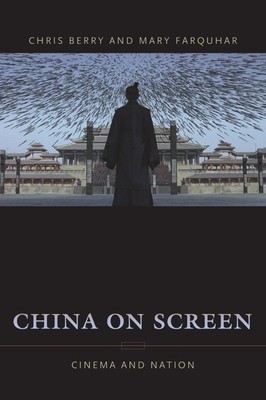
- We will send in 10–14 business days.
- Author: Christopher Berry
- Publisher: Columbia University Press
- ISBN-10: 0231137079
- ISBN-13: 9780231137072
- Format: 15.5 x 22.7 x 1.8 cm, minkšti viršeliai
- Language: English
- SAVE -10% with code: EXTRA
Reviews
Description
In China on Screen, Chris Berry and Mary Farquhar, leaders in the field of Chinese film studies, explore more than one hundred years of Chinese cinema and nation. Providing new perspectives on key movements, themes, and filmmakers, Berry and Farquhar analyze the films of a variety of directors and actors, including Chen Kaige, Zhang Yimou, Hou Hsiao Hsien, Bruce Lee, Jackie Chan, Maggie Cheung, Gong Li, Wong Kar-wai, and Ang Lee. They argue for the abandonment of "national cinema" as an analytic tool and propose "cinema and the national" as a more productive framework. With this approach, they show how movies from China, Hong Kong, Taiwan, and the Chinese diaspora construct and contest different ideas of Chinese nation--as empire, republic, or ethnicity, and complicated by gender, class, style, transnationalism, and more. Among the issues and themes covered are the tension between operatic and realist modes, male and female star images, transnational production and circulation of Chinese films, the image of the good foreigner--all related to different ways of imagining nation. Comprehensive and provocative,
China on Screen
is a crucial work of film analysis.
EXTRA 10 % discount with code: EXTRA
The promotion ends in 21d.04:17:10
The discount code is valid when purchasing from 10 €. Discounts do not stack.
- Author: Christopher Berry
- Publisher: Columbia University Press
- ISBN-10: 0231137079
- ISBN-13: 9780231137072
- Format: 15.5 x 22.7 x 1.8 cm, minkšti viršeliai
- Language: English English
In China on Screen, Chris Berry and Mary Farquhar, leaders in the field of Chinese film studies, explore more than one hundred years of Chinese cinema and nation. Providing new perspectives on key movements, themes, and filmmakers, Berry and Farquhar analyze the films of a variety of directors and actors, including Chen Kaige, Zhang Yimou, Hou Hsiao Hsien, Bruce Lee, Jackie Chan, Maggie Cheung, Gong Li, Wong Kar-wai, and Ang Lee. They argue for the abandonment of "national cinema" as an analytic tool and propose "cinema and the national" as a more productive framework. With this approach, they show how movies from China, Hong Kong, Taiwan, and the Chinese diaspora construct and contest different ideas of Chinese nation--as empire, republic, or ethnicity, and complicated by gender, class, style, transnationalism, and more. Among the issues and themes covered are the tension between operatic and realist modes, male and female star images, transnational production and circulation of Chinese films, the image of the good foreigner--all related to different ways of imagining nation. Comprehensive and provocative,
China on Screen
is a crucial work of film analysis.


Reviews